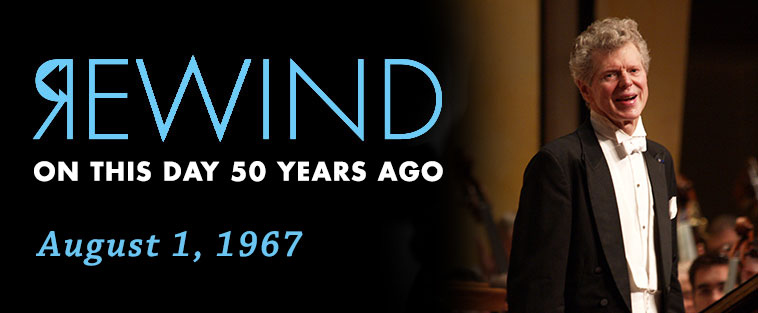
At a time when conflict with Russia weighed heavily on many minds—no, not today; during the mid-20th century—there was one thing that the then-Communist nation and the United States could agree upon: Van Cliburn was a great musician. In 1958, as the Cold War was escalating, Moscow inaugurated what is still today one of the most closely watched events in classical music, the International Tchaikovsky Competition. Then comprising contests for pianists and violinists, the competition hit a snag straight away. Though the winning violinist was a Russian, the pianist who had clearly risen to the top, having earned an eight-minute standing ovation for his performances of Tchaikovsky’s First Piano Concerto and Rachmaninoff’s Third, was the American Cliburn. The judges, obliged to seek permission from Soviet leader Nikita Khrushchev to award him the top prize, were told simply, “Is he the best? Then give him the prize.” He returned home a national hero, and a ticker-tape parade was held in New York City in his honor. Cliburn’s subsequent recording of the Tchaikovsky concerto became the first classical album to go platinum, and he soon made a series of recordings with the Chicago Symphony Orchestra.
Cliburn also made several appearances with the orchestra at Ravinia during the mid-’60s and early ’70s, including a performance of Rachmaninoff’s Third Piano Concerto on August 1, 1967. (The work will again thunder from the festival’s Pavilion stage on August 10, under the hands of Garrick Ohlsson and the baton of Krzysztof Urbański.) In addition to his appearances on the festival’s stage during the mid-’60s, Cliburn would be a guest on pianist, conductor, and composer Rudolph Ganz’s weekly WBBM radio show A Summer Night at Ravinia. Then, in 2005, following his receipt of the Kennedy Center Honors (2001), Presidential Medal of Freedom (2003) and Russian Order of Friendship (2004), Cliburn made a triumphant return to Ravinia with a gala performance of Grieg’s Piano Concerto with the Chicago Symphony Orchestra at the invitation of James Conlon, then the newly arrived director of the orchestra’s residency at the festival.
